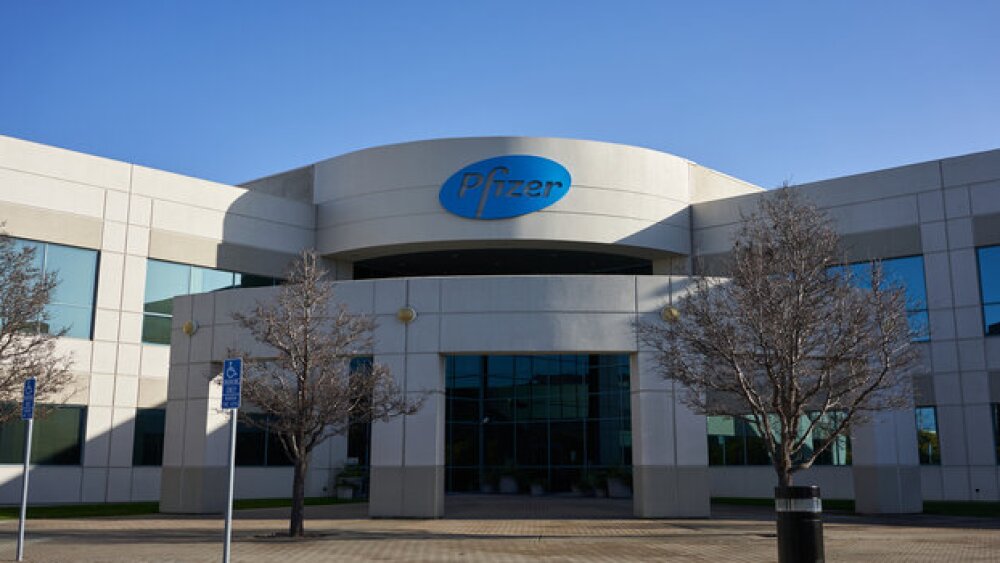On the heels of J&J’s Talvey, Pfizer’s bispecific antibody Elrexfio has secured an accelerated approval as another off-the-shelf treatment option for patients with relapsed or refractory multiple myeloma.
Pictured: Pfizer office at its South San Francisco campus/iStock, hapabapa
The FDA on Monday granted accelerated approval to Pfizer’s bispecific antibody elranatamab, to be marketed as Elrexfio, for the treatment of relapsed or refractory multiple myeloma.
Elrexfio’s label covers patients who had been treated with at least four prior lines of therapy, including an anti-CD38 antibody, an immunodulatory agent and a proteasome inhibitor. According to Pfizer’s announcement, Monday’s approval makes Elrexfio the first off-the-shelf, ready-to-use fixed-dose subcutaneous therapeutic that targets the BCMA protein.
“With significant responses in a patient population with highly refractory disease, we believe Elrexfio is poised to potentially become the new standard of care for multiple myeloma,” Pfizer Chief Commercial Officer Angela Hwang said in a statement, adding that the company will continue the treatment’s clinical development through its broad MagnetisMM program.
The FDA’s approval was supported by data from the Phase II MagnetisMM-3 study, which found that in heavily pretreated relapsed or refractory multiple myeloma (RRMM) patients who had not yet received BCMA-directed therapy, Elrexfio had an overall response rate of 58%, of whom around 82% maintained this response through at least nine months. In those with prior exposures to BCMA-directed therapies, Elrexfio elicited an overall response rate of 33%.
Data from MagnetisMM-3 also demonstrated that after 24 weeks of weekly administration, Elrexfio can be dosed once every other week in treatment responders, “which means less time at the clinic and potentially greater long-term treatment tolerability,” according to Pfizer’s press release.
Elrexfio’s label carries a boxed warning for cytokine release syndrome (CRS) and neurologic toxicities such as immune effector cell-associated neurotoxicity syndrome (ICANS).
As part of the accelerated approval pathway, the company is running a confirmatory Phase III trial, dubbed MagnetisMM-5, which was launched in 2022 and is designed to obtain additional safety and efficacy data for Elrexfio. Pfizer is also conducing the MagnetisMM-7 study to test Elrexfio as a maintenance therapy in newly diagnosed patients following transplantation.
Also with a recent win in the multiple myeloma space is Johnson & Johnson, whose subsidiary Janssen Pharmaceutical last week won the FDA’s accelerated approval for its first-in-class bispecific T-cell engager Talvey (talquetamab) as a treatment for RRMM. By targeting both the CD3 and the GPRC5D proteins, Talvey works by bringing together T cells and myeloma cells, allowing the body’s immune system to exert its anti-cancer effects. Like Elrexfio, Talvey comes with a boxed warning for CRS and ICANS.
Tristan Manalac is an independent science writer based in Metro Manila, Philippines. He can be reached at tristan@tristanmanalac.com or tristan.manalac@biospace.com.






